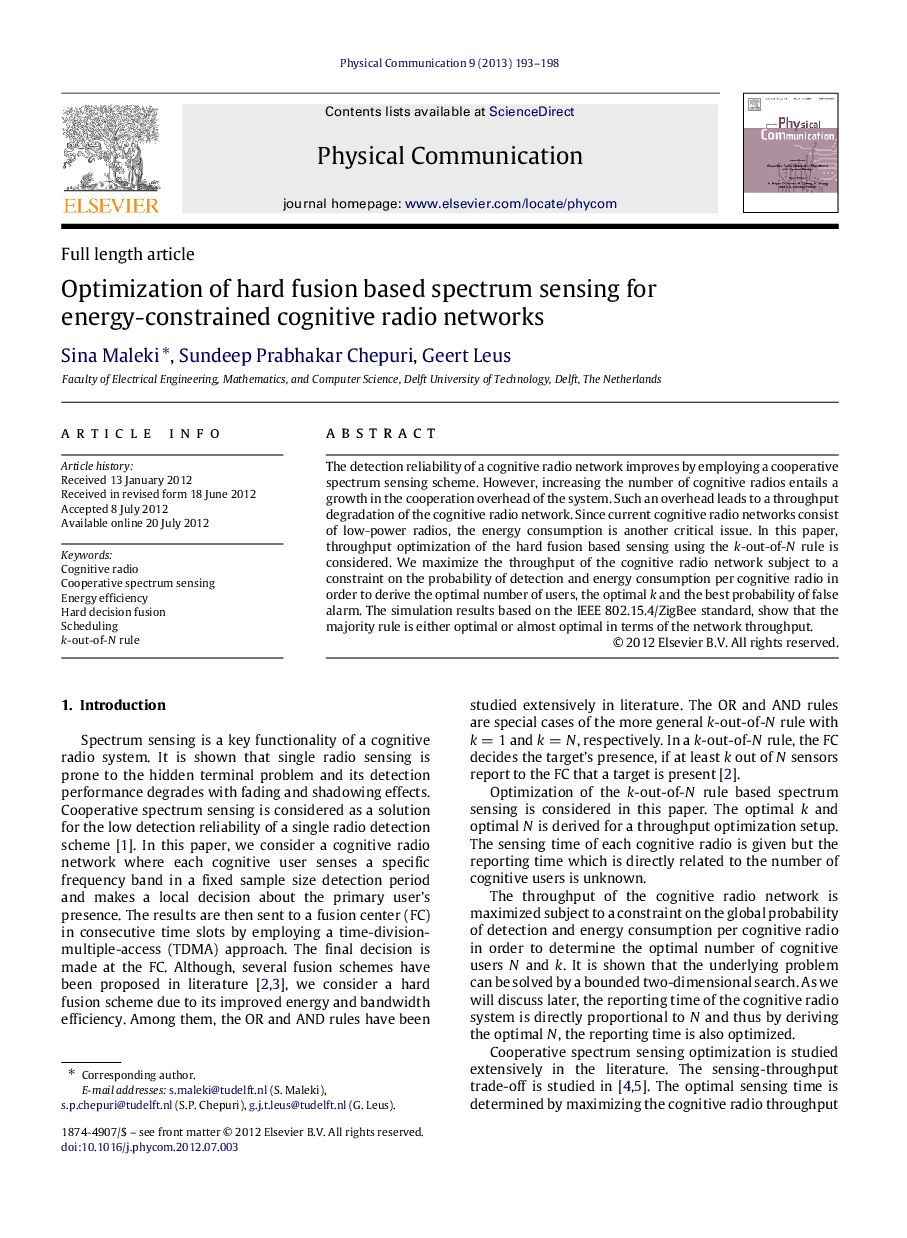| Article ID | Journal | Published Year | Pages | File Type |
|---|---|---|---|---|
| 465823 | Physical Communication | 2013 | 6 Pages |
The detection reliability of a cognitive radio network improves by employing a cooperative spectrum sensing scheme. However, increasing the number of cognitive radios entails a growth in the cooperation overhead of the system. Such an overhead leads to a throughput degradation of the cognitive radio network. Since current cognitive radio networks consist of low-power radios, the energy consumption is another critical issue. In this paper, throughput optimization of the hard fusion based sensing using the kk-out-of-NN rule is considered. We maximize the throughput of the cognitive radio network subject to a constraint on the probability of detection and energy consumption per cognitive radio in order to derive the optimal number of users, the optimal kk and the best probability of false alarm. The simulation results based on the IEEE 802.15.4/ZigBee standard, show that the majority rule is either optimal or almost optimal in terms of the network throughput.
